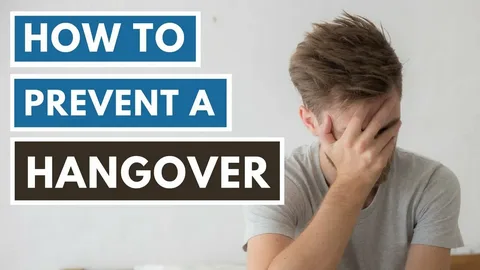A hangover is the unpleasant aftermath of excessive alcohol consumption, characterized by symptoms such as headache, fatigue, nausea, dehydration, and sensitivity to light and sound. While the best way to avoid a hangover is to drink alcohol responsibly or abstain altogether, there are several evidence-based strategies that may help mitigate the severity of hangover symptoms or prevent them altogether. In this comprehensive guide, we’ll explore seven effective tips for preventing a hangover.
Drink in Moderation
The most effective way to prevent a hangover is to drink alcohol in moderation or avoid it altogether. Moderation means drinking within recommended limits, which vary depending on factors such as gender, weight, and tolerance. Generally, moderate alcohol consumption is defined as up to one drink per day for women and up to two drinks per day for men.
Stay Hydrated
Alcohol is a diuretic, meaning it increases urine production and can lead to dehydration. Staying hydrated before, during, and after drinking alcohol can help mitigate dehydration and reduce the severity of hangover symptoms. Drink plenty of water throughout the day, especially before and after consuming alcohol, to help maintain hydration levels.
Eat Before Drinking
Consuming a meal or snack before drinking alcohol can help slow down the absorption of alcohol into the bloodstream and reduce the risk of a hangover. Opt for a balanced meal that includes carbohydrates, protein, and healthy fats, as these nutrients can help slow the rate at which alcohol is absorbed into the body.
Choose Beverages Wisely
Some alcoholic beverages contain higher levels of congeners, which are toxic byproducts of the fermentation and aging process that can contribute to hangover symptoms. Clear spirits like vodka and gin tend to have lower congener levels compared to dark spirits like whiskey and rum. Choosing beverages with lower congener content may help reduce the risk of a hangover.
Pace Yourself
Drinking alcohol too quickly can overwhelm your body’s ability to metabolize it, leading to a higher blood alcohol concentration (BAC) and an increased risk of a hangover. Pace yourself by sipping your drink slowly and alternating alcoholic beverages with non-alcoholic ones, such as water or club soda.
Get Plenty of Sleep
Alcohol disrupts normal sleep patterns and can result in poor-quality sleep, which may exacerbate hangover symptoms. Aim to get plenty of restful sleep before and after drinking alcohol to help your body recover and reduce the severity of hangover symptoms. Avoiding caffeine and electronic devices before bedtime can also promote better sleep quality.
Consider Supplements and Remedies
Several supplements and remedies are commonly used to prevent or alleviate hangover symptoms, although their effectiveness varies. Some evidence suggests that certain supplements, such as prickly pear extract, ginger, and B vitamins, may help reduce the severity of hangover symptoms or improve recovery. However, more research is needed to confirm their efficacy.
FAQs (Frequently Asked Questions)
Does drinking water between alcoholic beverages help prevent a hangover?
Yes, drinking water between alcoholic beverages can help maintain hydration and reduce the severity of hangover symptoms. Alternating alcoholic drinks with water or other non-alcoholic beverages can also help pace yourself and prevent excessive alcohol consumption.
Does the type of alcohol I drink affect my likelihood of getting a hangover?
Yes, the type of alcohol you drink can influence your risk of experiencing a hangover. Beverages with higher congener content, such as dark spirits like whiskey and rum, are more likely to cause hangover symptoms compared to beverages with lower congener content, such as clear spirits like vodka and gin.
Are there any foods that can help prevent a hangover?
While there is no specific food that can completely prevent a hangover, consuming a balanced meal before drinking alcohol can help slow down the absorption of alcohol into the bloodstream and reduce the risk of hangover symptoms. Foods rich in carbohydrates, protein, and healthy fats are particularly beneficial.
Does taking pain relievers before drinking alcohol prevent a hangover?
Taking pain relievers before drinking alcohol is not recommended, as it can increase the risk of liver damage and other adverse health effects. Additionally, pain relievers like acetaminophen (Tylenol) can interact with alcohol and exacerbate liver toxicity. It’s best to avoid taking pain relievers before or after drinking alcohol.
Does exercise help prevent or alleviate hangover symptoms?
While exercise can promote overall health and well-being, there is limited evidence to suggest that it can prevent or alleviate hangover symptoms. In fact, exercising while hungover may further dehydrate the body and exacerbate symptoms. It’s best to rest and hydrate after drinking alcohol to allow your body to recover.
Can drinking lighter-colored alcoholic beverages reduce the risk of a hangover?
Lighter-colored alcoholic beverages, such as clear spirits like vodka and gin, tend to have lower congener content compared to darker spirits like whiskey and rum. While choosing lighter-colored beverages may reduce the risk of hangover symptoms, moderation and pacing yourself are still key to preventing a hangover.
Are there any natural remedies for preventing hangovers?
Some natural remedies, such as prickly pear extract, ginger, and B vitamins, have been studied for their potential to reduce the severity of hangover symptoms or improve recovery. However, more research is needed to confirm their efficacy. It’s essential to use caution and consult with a healthcare professional before trying any natural remedies for hangovers.
In conclusion
preventing a hangover involves responsible alcohol consumption, staying hydrated, eating a balanced meal before drinking, pacing yourself, getting plenty of restful sleep, and considering supplements or remedies. While these strategies may help reduce the severity of hangover symptoms or prevent them altogether, the best way to avoid a hangover is to drink alcohol in moderation or abstain altogether. Understanding these evidence-based tips can help individuals make informed decisions about their alcohol consumption and minimize the risk of hangovers.
- Skin Treatment & Skincare Consultations Near Ranmore, Surrey - June 1, 2025
- Natural Energy Boosters: Kratom Drinks Explained - June 1, 2025
- Light Eyes Ultra – Dark Circles Treatment Near Hale, Surrey - May 31, 2025

